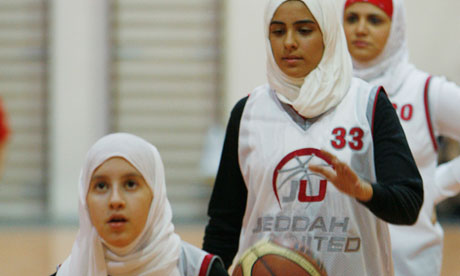By Adom M. Cooper
Impunity Watch Reporter, Middle East
CAIRO, Egypt–The first day of a controversial trial of 43 non-governmental organization workers accused of working illegally and pressing American and Israeli interests in Egypt has adjourned in Cairo. Mohammed Shoukry, the chief judge, stated on Sunday 26 February 2012 that the court would reconvene for the next hearing on 26 April 2012. The court session adjourned after being suspended “until order is restored” due to a brawl between civil claimants and the judge.

The defendants include 19 Americans and 16 Egyptians. Only seven of the US citizens reportedly remain in the country, where they are not permitted to leave. The others include Serbians, Lebanese, Germans, a Norwegian, a Jordanian, and a Palestinian. Only 13 Egyptians and one German defendants actually appeared at the hearing.
A prosecutor at the hearing read the charges against the defendants, alleging that their “acceptance of illicit funds had detracted from the sovereignty of the Egyptian state.” All 14 defendants who were present denied that they had committed the crimes they were charged with. Upon the case’s adjournment, human rights lawyer Hafez Abou Seida told Egyptian State television reporters that the circumstances surrounding the trial do not necessitate allowing civil claimants as plaintiffs in the case. Abou Seida also stated that the defendants’ representatives should begin submitting evidence of innocence by the upcoming hearing on 26 April 2012.
The charging of US citizens has brought relations between Egypt and the United States to their lowest points in almost three decades. US politicians stated they may cut off Egypt’s $1.3M in annual military aid if the US citizens are tried in the case, although none of them appeared at the hearing. Les Campbell, the regional director of one of the accused US organizations, stated tat his group’s foreign employees did not receive official summons from the court. Thus, they saw no reason to present themselves.
On the other hand, Egyptian officials have stated that the trial has absolutely nothing to do with the government and is in the hands of the judiciary. They have blamed the continued unrest in their country on foreign interference and attribute much of it to the organizations from which the workers in this case are charged.
Ashraf El-Ashmawi and Sameh Abu Zeid, two judges also handling the case, stated the charges could lead to up to five-year prison sentences. El-Ashmawi shared these words with Al-Jazeera.
“These organizations conducted unlicensed and illegal activities without the knowledge of the Egyptian government. Documents confiscated during the raids on the NGO offices confirm illegal foreign funding.”
Seven of the Americans remain in Egypt and have been residing on the grounds of the US embassy in Cairo since the charges were filed and they were barred from leaving the country. Outside of the courtroom on Sunday 26 February 2012, approximately 100 protesters called for the release of Omar Abdel-Rahman, the blind Egyptian cleric imprisoned in the US following the 1993 bombing of the World Trade Center in New York, in exchange for the US defendants.
The main US organizations involved in the trial are the International Republican Institute and the National Democratic Institute.
The activists were charged with the illegal use of foreign funds to stimulate and fester unrest and operating in the country without a license. But the investigation against these workers fits into a much larger framework. There is a campaign within Egypt’s leaders against foreign influence since the collapse of Hosni Mubarak’s regime last year, considered by many as the first real victory for the Arab Spring.
Rights groups have sharply criticized the existence of the investigation into the groups and the charges, stated that they are part of an orchestrated effort by Egyptian authorities to silence all those critical of the current military rulers. Since the ouster of Mubarak, the civilians in Egypt are ready to begin a new era of change and prosperity. They are putting pressure on the country’s military rules over their stewardship of the economy and the transition to a civilian government. The head of the ruling military council, Field Marshall Mohamed Hussein Tantwai, ordered on Sunday 26 February 2012 that parliament convene on 3 March to elect a committee to draw up a new constitution.
Since Mubarak’s ouster, Egypt has run through over 50 percent of its foreign reserves and is currently seeking a $3.2 billion loan from the International Monetary Fund, as well as additional help from the World Bank and other foreign donors. The Egyptian people are left wondering how and when this desired loan will be used to address their needs and desires, the same needs and desires that removed Mubarak from power and placed the military in control.
One of the defendants, Islam Shafiq, shared these words with the AFP. He works as a financial manager with the US-based International Center for Journalists.
“Of course this trial is politicized. We proved during the investigation that we didn’t do anything.”
For more information, please see:
Ahram – Egypt’s NGO Trial Adjourned for 26 April in First Session – 26 February 2012
Al-Jazeera – Egypt NGO Workers Trial Adjourned – 26 February 2012
Bloomberg – Egypt Court Adjourns Trial of Pro-Democracy NGO Workers Until April 26 – 26 February 2012
CNN – Trial Is Adjourned After Americans Fail To Appear in Cairo Court – 26 February 2012
The Guardian – Egypt Opens Trial of 43 Pro-Democracy Workers – 26 February 2012
NYT – Trial of U.S. Nonprofit Workers in Egypt Is Abruptly Put Off – 26 February 2012


